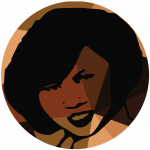Indigenous women through generations have experienced the impact of invasion: rape, killings and massacres, land dispossession and cruel confinement to missions and reserves. Our grandmothers and their mothers too, were subjected to laws that denied their very relationships to their own children, laws later found to violate the international law of genocide by the national human rights institution in the historic inquiry Bringing Them Home.
This violence has not abated, Indigenous women are treated violently by the law and believed to be the most incarcerated group of people in the world. Aboriginal children are removed from their mothers at staggering rates, experiencing abuse in care with connection to Aboriginal culture and identity being lost. Aboriginal women experience violence, including sexual violence and murder, at horrific levels; still denied the protection of laws and access to justice.
The former Prime Minister Paul Keating once said in his historic Redfern speech
“It begins with an act of acknowledgment”, a recognition of the role of non-Indigenous Australians in the perpetration of racial violence to Indigenous peoples. But Keating’s speech did not acknowledge the gendered aspects of this violence, the widespread rape and murders of Aboriginal women and girls, a taboo aspect of history buried from national consciousness.
What could racial justice mean for Indigenous women today in Australia? Human rights belong to all of us, not just women with privilege and power. It’s time for real speak and real actions to match our stated commitment to ending the violence against Indigenous women and girls.
The UN Convention on the Elimination of Race Discrimination (CERD) and the Convention on the Elimination of Discrimination Against Women (CEDAW) are binding international law. It’s time the Australian government, indeed all Australian governments, respected human rights, and ensured the rights of Indigenous women are finally acknowledged and protected.
Aboriginal women activists, including myself, have led the way reforming Australian government policy responses to violence; calling for a stand-alone, national action plan to ending violence and a national council on violence against Aboriginal women.
At the same time, many in the community feel that misogyny and discrimination against Indigenous women has not abated and Indigenous women’s human rights are very much at risk. States have a duty to ensure Aboriginal women’s leadership is promoted, but in my experience, the opposite is more likely to happen. As human rights defenders, we too experience racism and discrimination for our work.
There are three key areas where reforms to ensure racial equality for Aboriginal and Torre Strait Islander women are urgently needed. These are:
- the criminalisation of Indigenous women;
- the continued removal of Aboriginal children from mothers;
- and physical and sexual violence perpetrated against Aboriginal women and girls causing injury, trauma, and death.
Aboriginal women’s leadership and empowerment is critical to addressing these issues, yet we see the undermining of our leadership roles and work by governments and wider society.
The Aboriginal and Torres Strait Islander Social Justice Commissioner, June Oscar, powerfully documents the voices of Aboriginal women across Australia in her report Wiyi Yani U Thangani. The issues raised by women and girls had significant human rights implications and important recommendations made, including support for Aboriginal women’s leadership, addressing trauma and healing, and eradicating racism against Aboriginal women and girls.
We are still waiting to see the Australian Law Reform Inquiry Pathways to Justice, Addressing Aboriginal Incarceration implemented. The criminalizing of our women who have overwhelmingly experienced family violence and sexual abuse, must end. Aboriginal women must be diverted from the criminal justice system with culturally appropriate supports to address trauma and offending behavior. The racism that permeates mainstream services – including legal and health systems – only further damages our women.
Violence against Indigenous women is global; linked to colonization, Indigenous people’s dispossession from lands, and the ongoing genocidal nature of the settler state. The report of the UN Special Rapporteur on Violence against Women Violence Against Indigenous Women highlights the extent of this violence, which includes ecocide and violence to our lands.
Aboriginal women come from this land, or boodja, and are the First Nations women of this land. Racial justice requires a transformational, societal shift that requires Truth Telling about Australia’s violent past that justified contempt and exploitation of women and girls especially. This requires a genuine commitment to the rights of Indigenous peoples, set out in the UN Declaration on the Rights of Indigenous People, and guaranteed equally to Indigenous women. We need to ensure that these rights are upheld in Australia, the process of Voice, Treaty and Truth gives us an important opportunity to realise the rights and ensure justice for our women.
MEET THE AUTHOR

DR. HANNAH MCGLADE
Dr. Hannah McGlade is from the Kurin Minang people, she works in Indigenous human rights and has long worked in the movement against violence towards Aboriginal women. She is a member of the UN Permanent Forum for Indigenous Issues and an Advisor to the Noongar Council for Family Safety and Wellbeing.



